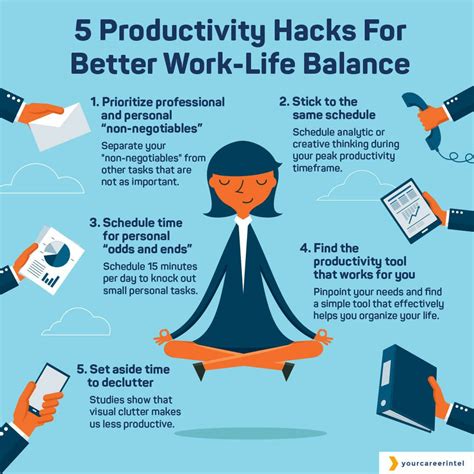Are you a job seeker struggling to manage your time effectively? In today’s competitive market, standing out from the sea of applicants while ensuring you do not burn out can be daunting. It’s easy to feel overwhelmed between scouring job boards, tailoring resumes, and maintaining some semblance of personal life. However, fear not, for we’ve compiled impactful time management strategies to streamline your job-hunting journey. Our guide, ‘Effective Time Management Strategies for Job Seekers,’ is tailored to help you maximize efficiency without compromising your well-being. We’ll explore how ‘Creating a Balanced Routine: Job Search and Personal Time’ can sustain your momentum, why ‘Utilizing Networking Events for Time-Sensitive Opportunities’ is key to unlocking hidden job markets, and how ‘Implementing the Pomodoro Technique for Application Processes’ can revolutionize your productivity. Ready to take control of your time and elevate your job search? Let’s dive right in!Discover how to balance job searching with personal time, leverage networking events for opportunities, and use the Pomodoro Technique for efficient applications.
Creating a Balanced Routine: Job Search and Personal Time

Establishing a balanced routine is quintessential for those engaged in the arduous journey of job searching; not only does it alleviate the overwhelming nature of the task at hand, but it also ensures that personal time is not eclipsed by the dominance of career-oriented pursuits. For those eager to master Time Management for Job Seekers, it is imperative to delineate boundaries between the professional and the personal, creating a harmonious equilibrium that fosters productivity while also nurturing the soul.
Strategies for Job Seekers to create a balanced routine may include penciling in dedicated hours for job searches and applications, ensuring these activities do not impinge on the tranquility of personal time, which is equally significant for maintaining a healthy state of mind. Adhering to a well-structured schedule mitigates the risk of burnout and elevates one’s prospects of securing a job, by allocating time judiciously – a principle that proves invaluable in the grander scheme of career advancement and personal well-being.
Utilizing Networking Events for Time-Sensitive Opportunities

For many job seekers, the task of finding employment can often feel like a race against time, where every second counts and opportunistic moments must be seized with immediacy and precision. In such a scenario, Utilizing Networking Events for Time-Sensitive Opportunities becomes an essential strategy to enhance the job search process. These events offer a platform for individuals to converge, share insights, and connect with potential employers, thereby serving as fertile grounds for cultivating professional relationships that may lead to imminent job openings.
Attending these functions with a clear plan can significantly amplify a job seeker’s efficacy in managing their time and resources. As part of Time Management for job seekers, it is recommended to pinpoint specific attendees or companies of interest, prepare pertinent questions, and tailor conversations to uncover possible vacancies or referrals. This strategic approach ensures that job seekers are not just passively participating, but actively advancing their employment prospects in a highly targeted and time-efficient manner. Therefore, integrating networking events into the broader scope of Strategies for Job Seekers can greatly expedite the job search journey, transforming potential opportunities into tangible results at a much quicker pace.
Implementing the Pomodoro Technique for Application Processes

Embarking on a job search can be a time-consuming and often overwhelming task, but by employing the principles of effective Time Management for job seekers, individuals can streamline their application process to become more productive and less stressed. Specifically, Implementing the Pomodoro Technique for Application Processes has emerged as a popular strategy to help job seekers maximize concentration and minimize burnout while sifting through numerous job listings and tailoring countless resumes and cover letters.
The crux of the Pomodoro Technique involves working in fixed intervals, traditionally 25 minutes in length, known as Pomodoros, followed by a short break to refresh the mind. For job seekers, this could translate into dedicating a single Pomodoro to fine-tuning a resume for a particular position, then taking a five-minute break before proceeding to craft a customized cover letter for another prospect. Not only does this foster a sense of achievement by completing tasks in manageable chunks, but it also keeps the long and often monotonous process of job applications engaging, diminishing the likelihood of procrastination, a common hindrance in Strategies for Job Seekers.
Frequently Asked Questions
What are some common time management mistakes job seekers make?
Job seekers often make the mistake of not setting clear goals, failing to prioritize tasks, not allocating specific time slots for job search activities, getting easily distracted by less important tasks, and not taking breaks which can lead to burnout.
How can setting goals help in managing time effectively during a job search?
Setting goals provides direction and focus, helping job seekers to prioritize their tasks and allocate their time efficiently. Clear goals make it easier to measure progress and maintain motivation throughout the job search process.
Why is it important for job seekers to create a daily schedule?
Creating a daily schedule helps job seekers establish a routine, reduce procrastination, and ensure that sufficient time is dedicated to each aspect of the job search, such as networking, applying for jobs, and developing skills.
Can you suggest any tools or apps that assist with time management for job seekers?
Yes, tools like Trello for task management, Calendar apps for scheduling, Todoist for creating to-do lists, and RescueTime for tracking time spent on activities can be very helpful for job seekers looking to manage their time better.
How does networking fit into a job seeker’s time management plan?
Networking should be a key component of a job seeker’s time management plan. Allocating time for attending networking events, connecting with professionals in the field on LinkedIn, and following up on leads can open up new opportunities and potentially shorten the job search.
What role does self-care play in effective time management for job seekers?
Self-care is crucial as it helps maintain mental and physical health, reducing the risk of burnout. Job seekers should manage their time to include activities like exercise, hobbies, and adequate rest to ensure they stay motivated and productive.
How should a job seeker handle the time following an interview?
After an interview, a job seeker should send a thank-you note to the interviewer, reflect on the interview to identify any areas for improvement, and continue with their job search and skill development activities until they receive a response from the employer.








